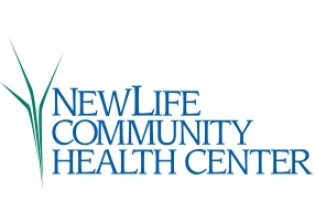
|
|---|
| Christine Chim, Pharmacy Director |
|---|
Over the past several years, the healthcare system has evolved to focus on improvements to the health of the larger community, particularly through preventive care. I have committed my career to working with underserved populations, within the context of their communities, to prevent disease. Over the years, I have collaborated with various community partners to set up health fairs or related events to educate the public about disease prevention and safe medication use. I promote cost-effective use of medications at a population level to ensure accessibility for underserved populations. While working with Institute for Family Health, I served on a Pharmacy and Therapeutics Committee to create medication-related policies, to be used across multiple healthcare sites to ensure safe, quality care for our patients.
The healthcare system has also evolved to promote shared decision making among healthcare professionals and patients. As a clinical pharmacist I work within an interdisciplinary team to improve health outcomes. I work with protocols collaboratively created by clinicians, case managers and pharmacists. These protocols guide me in my discussion with the patient about the best medication regimen to meet their healthcare needs. These discussions necessarily focus on barriers to adherence, which are prevalent among populations who are challenged with homelessness and unstable social situations. I also discuss the safe use of medications, particularly among those who face substance use challenges. I will bring these skills in interdisciplinary care and shared decision making into our project addressing the wicked problem of binge drinking among the Latino Day Laborer population. Together with my colleagues, we will empower the population we serve to make safe and cost-effective choices concerning their medical treatment.
As an educator, I instill these same priorities in the pharmacy students I train to work in clinical settings. When my students interact with patients, my goals for them are to: 1) develop empathy for their patients; 2) develop cultural sensitivity to healthcare disparities such as socioeconomic barriers that impede patients’ abilities to achieve positive outcomes; 3) appropriately address medication nonadherence; 4) advocate for patients as a partner in their healthcare; and 5) work collaboratively with other healthcare professionals. I address these issues because they are challenging and do not offer simple solutions within the current context of our healthcare system. As a part of NLCHC, as well as the Urban Institute at St. John’s University, I lead change in healthcare to help achieve these challenging aims in the promotion of health equity and advocating for the underserved.
The healthcare system has also evolved to promote shared decision making among healthcare professionals and patients. As a clinical pharmacist I work within an interdisciplinary team to improve health outcomes. I work with protocols collaboratively created by clinicians, case managers and pharmacists. These protocols guide me in my discussion with the patient about the best medication regimen to meet their healthcare needs. These discussions necessarily focus on barriers to adherence, which are prevalent among populations who are challenged with homelessness and unstable social situations. I also discuss the safe use of medications, particularly among those who face substance use challenges. I will bring these skills in interdisciplinary care and shared decision making into our project addressing the wicked problem of binge drinking among the Latino Day Laborer population. Together with my colleagues, we will empower the population we serve to make safe and cost-effective choices concerning their medical treatment.
As an educator, I instill these same priorities in the pharmacy students I train to work in clinical settings. When my students interact with patients, my goals for them are to: 1) develop empathy for their patients; 2) develop cultural sensitivity to healthcare disparities such as socioeconomic barriers that impede patients’ abilities to achieve positive outcomes; 3) appropriately address medication nonadherence; 4) advocate for patients as a partner in their healthcare; and 5) work collaboratively with other healthcare professionals. I address these issues because they are challenging and do not offer simple solutions within the current context of our healthcare system. As a part of NLCHC, as well as the Urban Institute at St. John’s University, I lead change in healthcare to help achieve these challenging aims in the promotion of health equity and advocating for the underserved.




